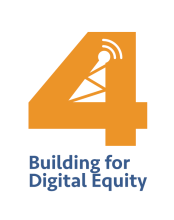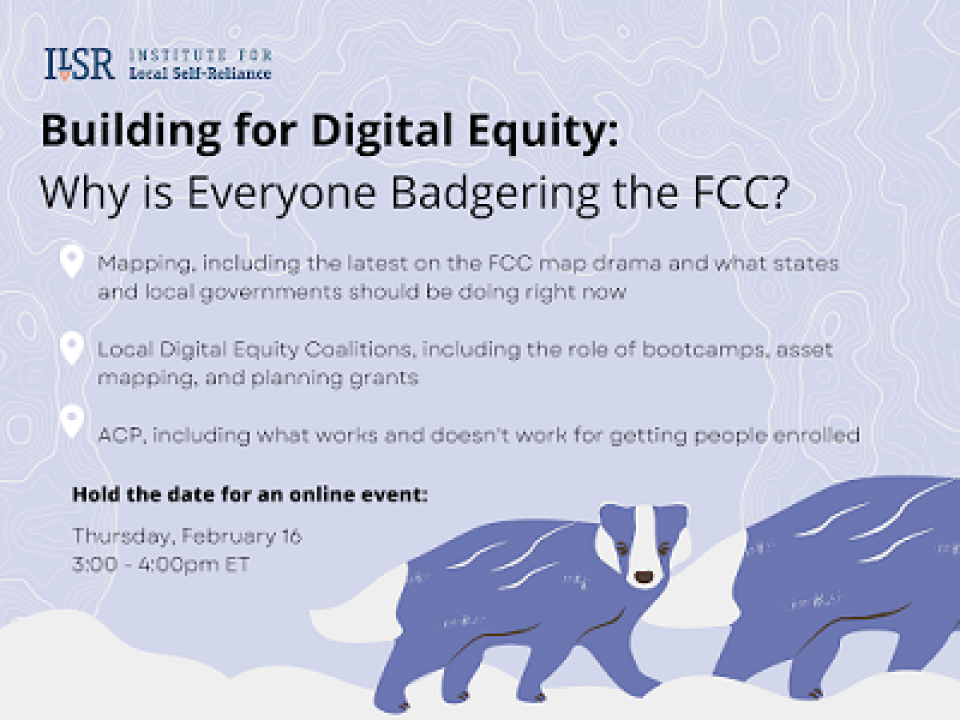Susan Corbett Discusses Digital Equity in Maine and Nationally - Building for Digital Equity Podcast Episode 5

Susan Corbett is the Executive Director of the National Digital Equity Center and has long been involved in policy around Internet access and digital equity both in Maine and across the United States. Susan and I chatted at Net Inclusion about how she got going in this space in 2005 as the owner of a small ISP in rural Maine.
We also discuss how they use a database and surveys to track the progress of their programs to ensure they are effective. They've worked on distributed devices, skill building, and more and are now involved with the Maine Digital Equity Plan.
Finally, we discuss some of the changes that Susan has seen over the years.
This show is 14 minutes long and can be played on this page or using the podcast app of your choice with this feed.
Transcript below.
We want your feedback and suggestions for the show-please e-mail us or leave a comment below.
Listen to other episodes here or see other podcasts from the Institute for Local Self-Reliance here.
Thanks to Joseph McDade for the music. The song is On the Verge and is used per his Free-Use terms.







